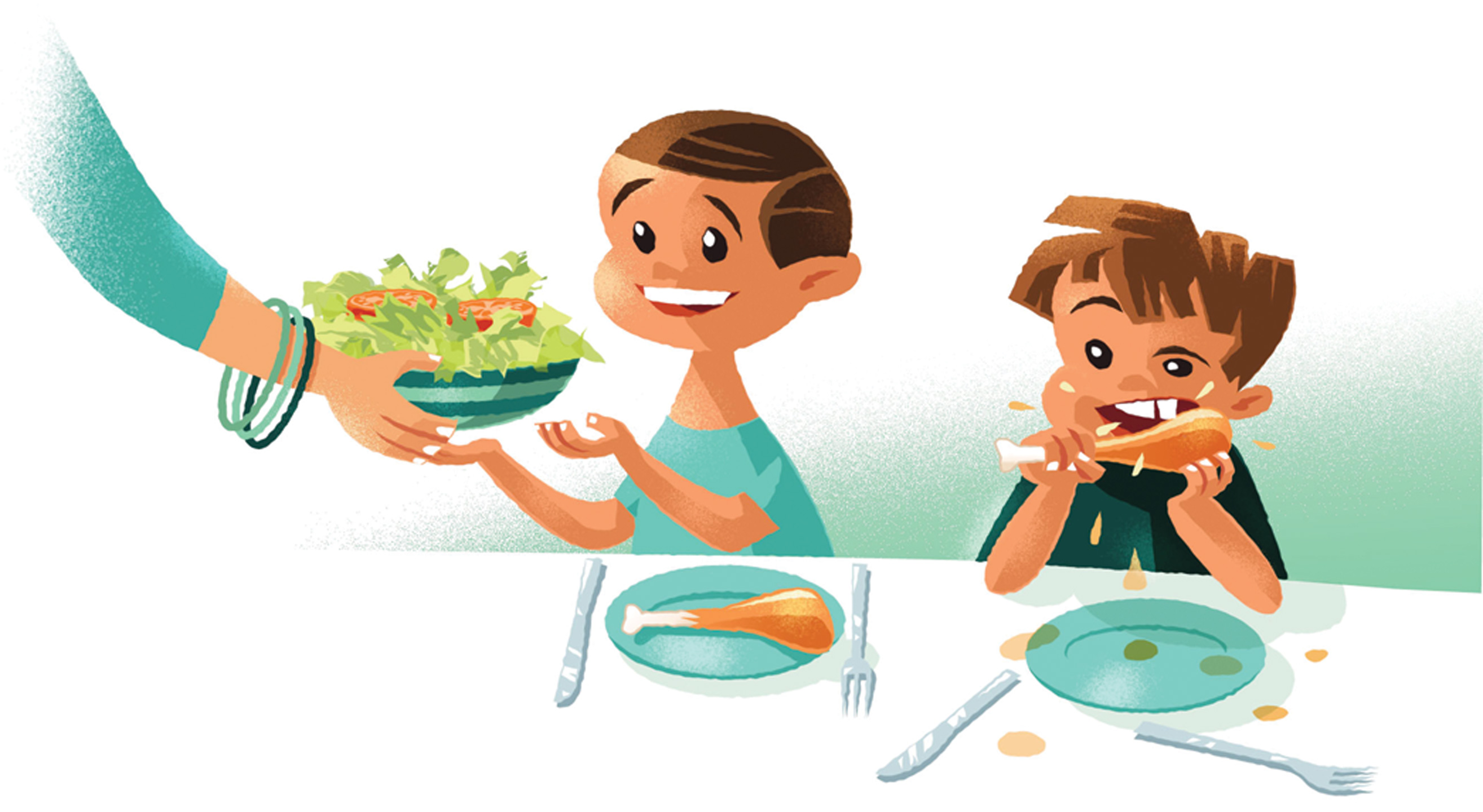
07 Feb The Rightness Of Politeness
Nicole Thompson considers how we teach our children that manners matter.
A single voice pierced the muffled sounds of the airport terminal, and my ears pricked up instinctively. “Lucy, no! Remember your manners,” the voice shouted. “Say, ‘Please, Mummy’.” My son and I turned to fix on the voice’s owner. A mother stood staring down at her distraught, tired-looking toddler daughter, whose lips trembled and large eyes brimmed with tears as she stared back. “You’re not getting them unless you use your manners,” said the mother sharply. Confusion and powerlessness crumpled the girl’s delicate features until she could no longer contain her emotions and started sobbing. The mother sat down, a stern, resolute expression on her face.
It was 5.30am, and my five-year-old son sat on my lap, tired, bored and hungry. We’d been up since 3 am, an early start for any young child, including the distressed toddler. After watching the mother refuse her daughter a packet of sultanas over the child’s non-deployment of a single word, a string of questions formed in my mind.
What’s the right age for children to start learning?
What was more important, feeding a hungry, tired, vulnerable child or insisting that manners be used at all times? Should the toddler grasp this complex social interaction or is she too busy responding to the needs of her body? What did I do when my son was younger to teach him manners, and what’s the right age for children to start learning?
Pinky McKay writes in Toddler Tactics, “Your role as the teacher of a toddler can be a challenge – at this stage you aren’t dealing with a potentially reasonable, miniature adult. Toddlers have short attention spans, immature nervous systems (they may be overstimulated by exposure to background noise such as television or bright lighting, so shopping centres can be overwhelming), emotional needs that aren’t easy to articulate with a limited vocabulary, and a variety of physical needs (hunger, tiredness, food allergies or sensitivities to substances such as sugar, caffeine, chemicals), as well as insatiable curiosity. These factors all affect little one’s behaviour.”
Not long after my son’s fourth birthday, he asked me, “Mummy, why do I need to say please and thank you? What are manners anyway?” I had been fairly relaxed about teaching him manners until he turned four, at which point I began to practise gentle reminders. This was an age at which I imagined he would be better able to absorb and understand why manners were necessary. He readily grasped the ideas I presented to him and began to delight in saying a heartfelt ‘please’ or ‘thank you’, once he understood.
However, author and educator Maggie Dent is concerned some parents use threats and shaming language to instil manners. “Using power to get a certain response is teaching children how to do the same to others,” she says. “Mimicking please and thank you when you’re under the age of three or four is great, however how we choose to respond if they don’t play the game is the big issue. Many children become people pleasers; others rebel because they know they are being manipulated.”
Parents should choose their battles
Clinical psychologist Renee Mill believes the toddler developmental stage is about fighting for autonomy. “Children say ‘no’ to prove they are individuals,” she says. “Parents should choose their battles and find better ways, such as playing games, to teach a message or simply stating that in future you would like them to respectfully say, ‘Please, Mum, pass the salad,’ for example. You aren’t waiting for a response or immediate reaction; you are educating and will be repeating it many times.”
It’s important to have respectful boundaries. A child may exercise the freedom to choose within these boundaries, with a developing awareness that their actions have negative or positive consequences. Once a child begins to grasp why manners are necessary, and what the consequences of not using them are, they will usually choose the right thing to do. More importantly, their choice will be filled with meaning and genuine intention, compared with the child who is doing something because they are forced to.
Dent says the development of empathy in children is influenced by how loved and connected they feel. “When a child’s needs are met in a consistently loving and supportive manner, it sets the foundation for a life built on empathy and respect for ourselves and others.”
Learning is also best under pleasant circumstances
Do we thank someone for helping us because we genuinely appreciate what they’ve done, or because society expects us to? Understanding this difference enhances children’s and adults’ social interactions. Manners are about showing respect to others. This respect is usually reciprocated, and we become accepted and acknowledged. Children who show respect to others are valued as playmates and function more effectively in an adult world. Manners are important.
Many experts say we can start teaching children basic manners from as early as two years of age. They say it is important not to diminish a child’s sense of self if they fail or resist, and to maintain realistic expectations according to the child’s age. Learning is also best under pleasant circumstances and not when children are upset. For example, role-play is one way to teach children about manners in a variety of comfortable situations and settings. It creates pictures in a child’s mind, and when it is fun and positive, helps the child to better retain the lesson.
If children learn through imitation, it would also be reasonable to expect that we can only truly teach them if we are good role models. When we gently remind them to use their manners, we ourselves should be asking in a way that is mannerly. We are keenly observed and imitated not only by our children but by other children as well, so consistently treating all children with genuine respect has a positive impact on the wider community.
Maybe it’s not about teaching children manners so they are accepted by society, but more about teaching them the deeper meaning of manners. Showing that we are not just doing what is expected of us, but are exercising our freedom to choose, means we have developed genuine care and concern for others.
Illustration by Dean Gorissen



